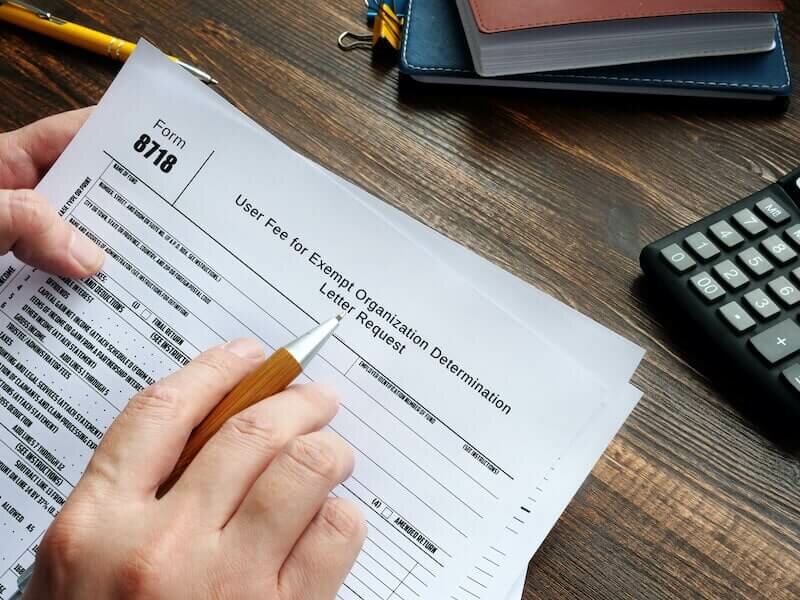Property tax exemptions are one of the most effective and straightforward ways to reduce your property tax bill and save money. Texas taxpayers are eligible for a variety of property tax exemptions, including homestead, over-65 homestead, disabled homestead, and disabled veterans exemptions.
Today’s article will discuss Texas property tax exemptions, what they are, how they work, and who is eligible. We’ll also mention a notable exception to the tax exemption rules.

An Overview of Texas Property Taxes
Texas property taxes are local taxes collected by local governments and used as the largest funding source used to pay for schools, streets, roads, police, and other protection services.
According to the Texas Constitution Basic Property Tax Rules, all property must be taxed equally and uniformly. No single property or type of property should be taxed more than its fair market value. Generally speaking, all property is taxed in proportion to its value unless constitutionally exempt from taxation.
It’s important to acknowledge that Texas has no state property tax. Instead, the Texas Constitution and statutory law authorize local government bodies to collect the tax. As such, Texas property tax is a local tax that is assessed, collected, and used locally. Given that the state doesn’t collect property tax, it also doesn’t set the tax rates or settle any tax disputes between you and your local government.
The local governments’ governing bodies are the ones that determine the amount of property taxes they want to raise and set the appropriate tax rate.
Who Does What?
Local property tax systems in Texas are comprised of several components:
· As a taxpayer and a property owner of a residential or business property, you are responsible for paying taxes and having reasonable expectations that the taxation process is being fairly administered.
· An appraisal district, administered by the chief appraiser, determines or rather appraises your personal property’s value each year. The chief appraiser is hired by the county appraisal district’s board of directors, which is elected by the taxing unit.
· An appraisal review board (ABR) composed of local citizens hears disagreements between taxpayers and the appraisal district regarding property’s taxation and appraised value.
· Local taxing units include school districts, counties, cities, special districts, and junior colleges to assess how much money they’ll need to spend in order to provide public services. Property tax rates for the following tax year are set according to the budget estimations set by local taxing units.
· The Assessor-collector collects all property taxes payable in that county on behalf of taxing units. The proper sums are subsequently transferred to each taxation unit.
Texas Tax Laws
Since there are no personal income taxes in Texas, Texas relies heavily on sales, property, and several taxes on business and specific industries to pay for public services and infrastructure.
Texas has property taxes, which are collected by counties, cities, and school districts, and not by the state. As a result, the revenue produced by those tax collections can only be used for local needs, giving each county more autonomy.
Texas is a pretty tax-friendly state and one of the top tax-friendly states for retirees, considering that it doesn’t tax pension payments or income on top of tax exemptions for the retirees.
The overall tax burden for 2021 came in at just 8.19%, ranking Texas as the 30th among all states. In contrast, New York came in first with 12.79% in 2021. However, the Tax Foundation ranked Texas as 46th among all states, assigning it a tax burden of just 7.6%, albeit according to its proprietary criteria.
The Breakdown of Taxes in Texas
· Texas has no income taxes, but it levies a franchise tax of 0.375% on wholesalers and retailers. This rate can go up to 0.75% for non-exempt businesses.
· “Death taxes” consisting of inheritance and estate taxes are also non-existent. Texas repealed its inheritance tax in 2015 and has no estate taxes either. However, it’s worth pointing out that estates valued at more than $11.7 million are subject to a federal level tax as of 2021.
· Property taxes are based on the home’s value assessed by the appraisal district. The value is then multiplied by the local tax rate to determine your tax bill.
· Sales taxes are Texas’ state-level taxes, sitting at 6.25%, but local governments can add more sales taxes on top of. Unprepared food bought at grocery stores and prescription and over-the-counter drugs are exempt from sales taxes.

Texas Property Tax Exemptions
Property taxes can be a burden to any budget, so the government has created property tax exemption programs to help property owners reduce their tax bills. For example, a tax rate of 1.8% applied to an appraised value of $200,000 is $3600, higher than 1.8% applied to $175,000, which equates to $3,150, a significant difference of $450. The state of Texas has several tax exemptions available:
Homestead Exemption
As shown in the example above, the residential homestead exemption allows you to reduce your tax bill. However, you can qualify for up to a $25,000 reduction in your home’s appraised value only if it’s your principal residence. Secondary residences do not apply to residence homestead exemptions.
The Texas State Property Tax Code allows school districts to offer a separate, optional exemption of up to 20% to homeowners for their primary residence. However, the amount of exemption of this particular local option can’t be less than $5000.
Exemptions for Seniors and the Disabled
Homeowners 65 years of age or older, or those who are disabled, can qualify for an additional $10,000 exemption for school district taxes. However, over-65 exemptions for local property taxes can’t be less than $3,000.
If they apply, surviving spouses, widows, or widowers, aged 55, whose deceased spouse qualified for an over-65 exemption can continue to receive the exemption benefits themselves.
A person with disabilities can only qualify for a disabled person exemption if they meet the definition of disabled under the federal OASDI Act and satisfy a specific disability rating (varies from state to state).
Elderly citizens with disabilities can apply for both exemptions with the Social Security Administration and reap both the elderly and disability benefits. However, those applications can’t originate from the same taxation unit.
Disabled Veterans Exemptions
The Texas Property Tax System offers partial property tax exemptions to disabled veterans, their surviving spouses, and children. The same tax exemption is available to surviving spouses of US armed service members killed in active duty, only under the condition that they haven’t remarried.
Home Sales Tax Exemptions
Home sales are taxable up to 20% under the Texas Tax Law, so if you sell your home for $200,000, you owe $40,000 in capital gain taxes. However, there is a legal workaround to paying capital gain taxes on home sales.
Enter Four 19 Properties, a company that buys houses that Texas taxpayers are looking to sell fast. Contact them if you’re considering accepting cash offers on your house.
Four 19 Properties are cash home buyers Fort Worth home-sellers highly praise, and according to them, sales taxes play a crucial role in costs of home sales. However, you can receive tax exemptions only if you sold your primary residence and used your capital gains to purchase a new home of equal or similar value.
In addition to buying houses in Fort Worth, Four 19 properties conducts business all over Texas. We buy houses in Arlington for which residents wish to sell, for whatever reason and in any condition, because we know it’s hard to sell a house fast and for a reasonable price.
A Notable Exception
Most religious organizations that support and encourage religion as an incidental part of their overall purpose or promote religious teachings are usually exempt from taxation in numerous states.
However, under Texas Tax Law, religious groups and non-profit charitable organizations aren’t automatically exempt from the franchise, sales, and hotel taxes. Instead, such organizations must apply and provide an exemption form to the Comptroller’s office for exemption from the franchise, sales, and hotel taxes.
How to Find Out If You’re Exempt From Property Taxes
To find out if you’re exempt from general property taxes, the best course of action is to consult with your county’s appraisal district or Texas Comptroller of Public Accounts. These offices can check your eligibility for one of several categories of tax exemptions described above and point you in the right direction in terms of the exemption application in case you’re eligible for an exemption.
Summary
Texas is one of the most tax-friendly states in the nation, despite the seemingly high 8.19%. There aren’t any income or pension payment taxes, not to mention incredible exemptions for both workers and the elderly.
Some exemptions are difficult to apply for, like capital gains tax, though you can easily circumvent that one by purchasing another home. If you have any questions on house sales in Texas or want to know if it is hard to sell a house, contact Four 19 Properties, or refer to their website for answers.
